How we source
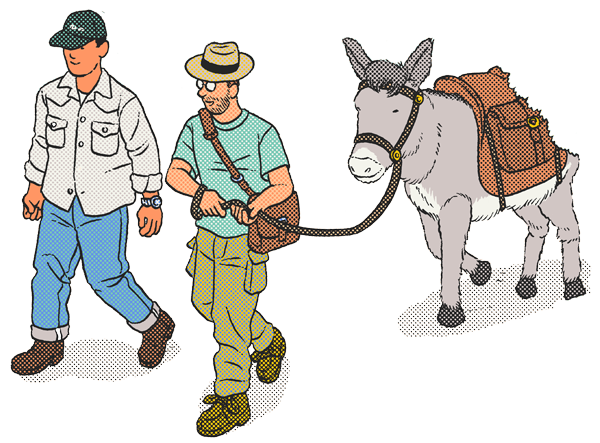
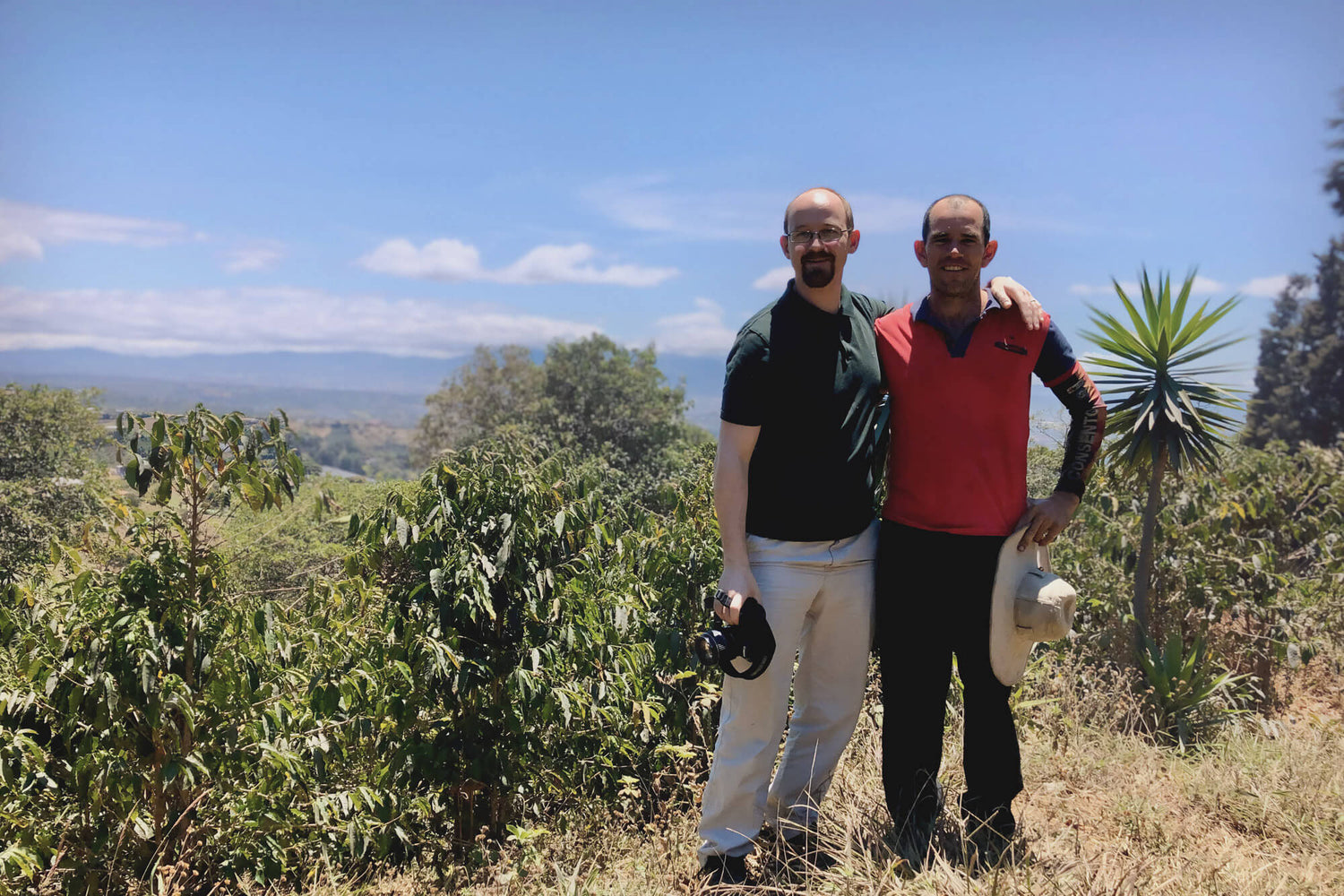
We’re obsessed with coffee and the range of flavours that specialty coffee can offer. We travel the world in search of the best coffee on the planet.
Sourcing philosophy
-
We source from world-class producers who are paving the way for more sustainable and ethical coffee production.
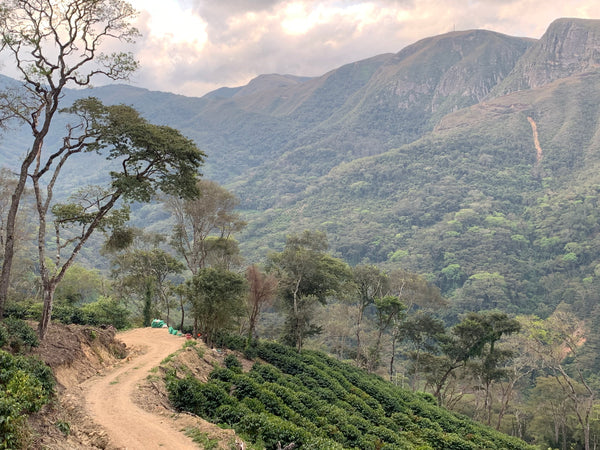
-
We’ve built long-term, transparent relationships with producers around the world to bring you an ever-changing variety.
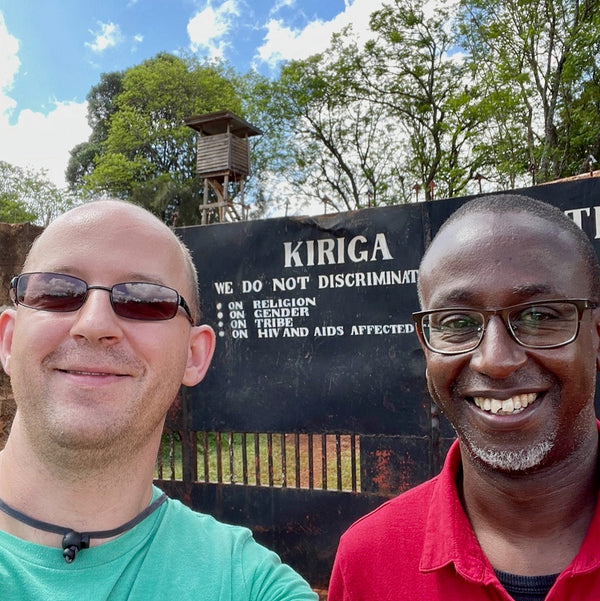
-
Roasted daily at our Stafford roastery to bring you the best flavour and quality, every time.
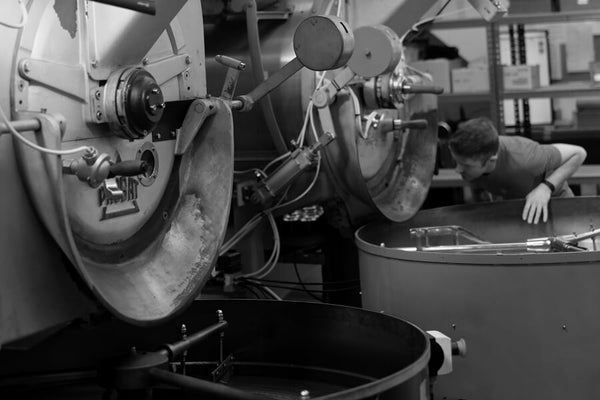
-
We’re unapologetically obsessed with flavour and travel the world in search of the most exciting and diverse range.
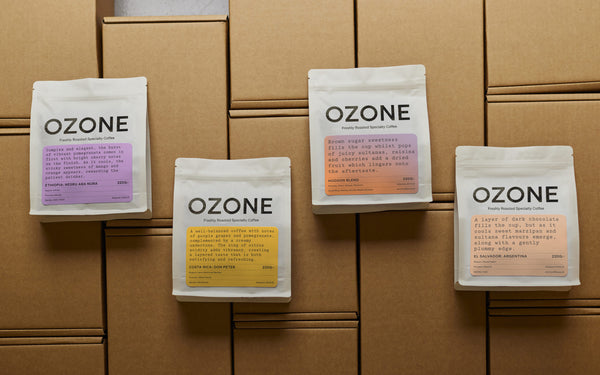
Our Relationships
We are proud to work with a brilliant selection of producers, who share the same passion as we do for incredible specialty coffee.
Producer Name
-
Agua Azul Cajamarca, Peru
Producer Story -
Alejandro Martinez Finca Argentina, El Salvador
Producer Story -
Allan Oviedo & Family Don Joel Micromill, Costa Rica
Producer Story -
Carmen and Rafael Silva Sicafe, El Salvador
Producer Story -
Steven Hurst Fazenda Inglaterra, Brazil
Producer Story -
The Rodriguez Family Fincas Los Rodriguez (Alasitas, El Fuerte, Floripondio), Bolivia
Producer Story -
Gregorio Paye Mamani Volcán del Tigre, Bolivia
Producer Story -
Sol De La Mañana Producers Caranavi, Bolivia
Producer Story -
Juba La Montaña, Mexico
Producer Story -
Francisco Mena Sumava de Lourdes, Costa Rica
Producer Story -
Carlos Arrieta & Family Café ARBAR, Costa Rica
Producer Story -
Pedro flores Villa Rosario, Bolivia
Producer Story
-
Beanspire Doi Pangkhon, Thailand
Producer Story -
El Yalcon La Plata, Nataga, Paez, Pital and Tesalia, Colombia
Producer Story -
The Mierisch Family Fincas Mierisch, Nicaragua
Producer Story -
Gabriel De Carvalho Dias Fazenda Cachoeira da Grama, Brazil
Producer Story -
Gloria Rodriguez Finca San José, Finca Nejapa, El Salvador
Producer Story -
The Reyes Family San Patricio El Limon, Guatemala
Producer Story -
Don Gabriel Cortes El Tractor, Colombia
Producer Story -
Ensambles Veracruz, Guerrero, and Oaxaca, Mexico
Producer Story -
Maria and Mario Andrade Machacamarca BV, Bolivia
Producer Story
-
Hermanos Aguilera Finca Licho & Toño, Costa Rica
Producer Story -
Juliana Paulino & Flavio de Costa Mello Nova Aliança, Brazil
Producer Story -
Mahembe Coffee Western Region, Rwanda
Producer Story -
KIRUNDO MILL & CAFEX Washing Station Kirundo County, Burundi
Producer Story -
Gibrán Cervantes El Equimite, Mexico
Producer Story
-
Dr. Brian Gakunga Kiriga Estate, Kenya
Producer Story -
Martin Chirino Copacabana, Bolivia
Producer Story -
Nui & Aoy Intakad Doi Saket, Thailand
Producer Story -
Jose Hernan Giron La Alondra, Honduras
Producer Story -
Mensur Aba Hika & Nesru Aba Nura Jimma, Ethiopia
Producer Story -
Telila Washing Station Jimma, Ethiopia
Producer Story -
Tejao Smallholders Oaxaca, Mexico
Producer Story -
The Bonilla Family Don Mayo Micromill, Costa Rica
Producer Story
Articles
-
What is coffee grading?
Coffee is a natural product, and like all things grown in nature, no two beans are exactly alike. Some are larger, some smaller, some rounder, some more elongated. To bring consistency to the trade and roasting process, producers and buyers have long relied on coffee bean grading systems – with bean size being one of the most common metrics.
-
Exploring Kenyan Coffee
Here at Ozone, we take pride in our commitment to sourcing the finest specialty coffee from around the world. Recently our Green Coffee Buyer, Roland Glew, took off on an origin trip to Kenya, where he explored the Kiriga Estate and explored the intricacies of the coffee production process.
-
¡Pura Vida! 🇨🇷 Why we travel to origin
It's all about the people, relationships are important! You don't need to travel to origin to buy coffee, but the value of maintaining relationships with producers and exporters is not something that can be done solely over the internet. We're proud to work with and support amazing specialty coffee from Costa Rica.
-
What is Biodynamic Coffee?
Biodynamic farming shares many of its principles and methodology with organic farming. There is a big focus on soil health by not using pesticides, herbicides and other toxic ingredients in their farming practices, all of which are normal practises with certified Organic farming too. But there are other principles that go even further than certified Organic farming, based around sustainability and care for the environment through self-sufficient practises.
-
What is Coffee Cupping?
People in the trade will have you believe that coffee cupping is a science, an exact art requiring a lot of expertise. To some extent this can be true, but this should not put off the enthusiast from enjoying it too. It can be very simple (and enjoyable) and there are no right or wrong answers. Your palette may pick up hints of a taste that the most season cupper would not, as each person can find different things in the cup.
-
The Impact of the Pandemic on Our Producers
Now is our time to stand up and make sure that the coffee world that we love and enjoy is protected. So, keep drinking speciality coffee, keep safe and wash your hands!
-
Coffee production in El Salvador
Currently representing 3% of the Gross National Product and 22% of the agricultural product, coffee has traditionally been an important source of hard currency. In 1997 it accounted for 22% of total exports. With improved local investment and a stable political climate, production in the 1990`s has stabilised at around 2.3 million 60kg bags, a 2.3% share of world output. El Salvador is currently ranked 11th in production terms amongst the 55 producing nations.
-
Kenya Coffee Auction
Kenya’s coffee auction system dates back to 1934. The auctions still take place at the Nairobi Coffee Exchange and are widely considered to be most transparent distribution system for fine green coffees anywhere in the coffee world and inspired the model for the Cup of Excellence auctions.




